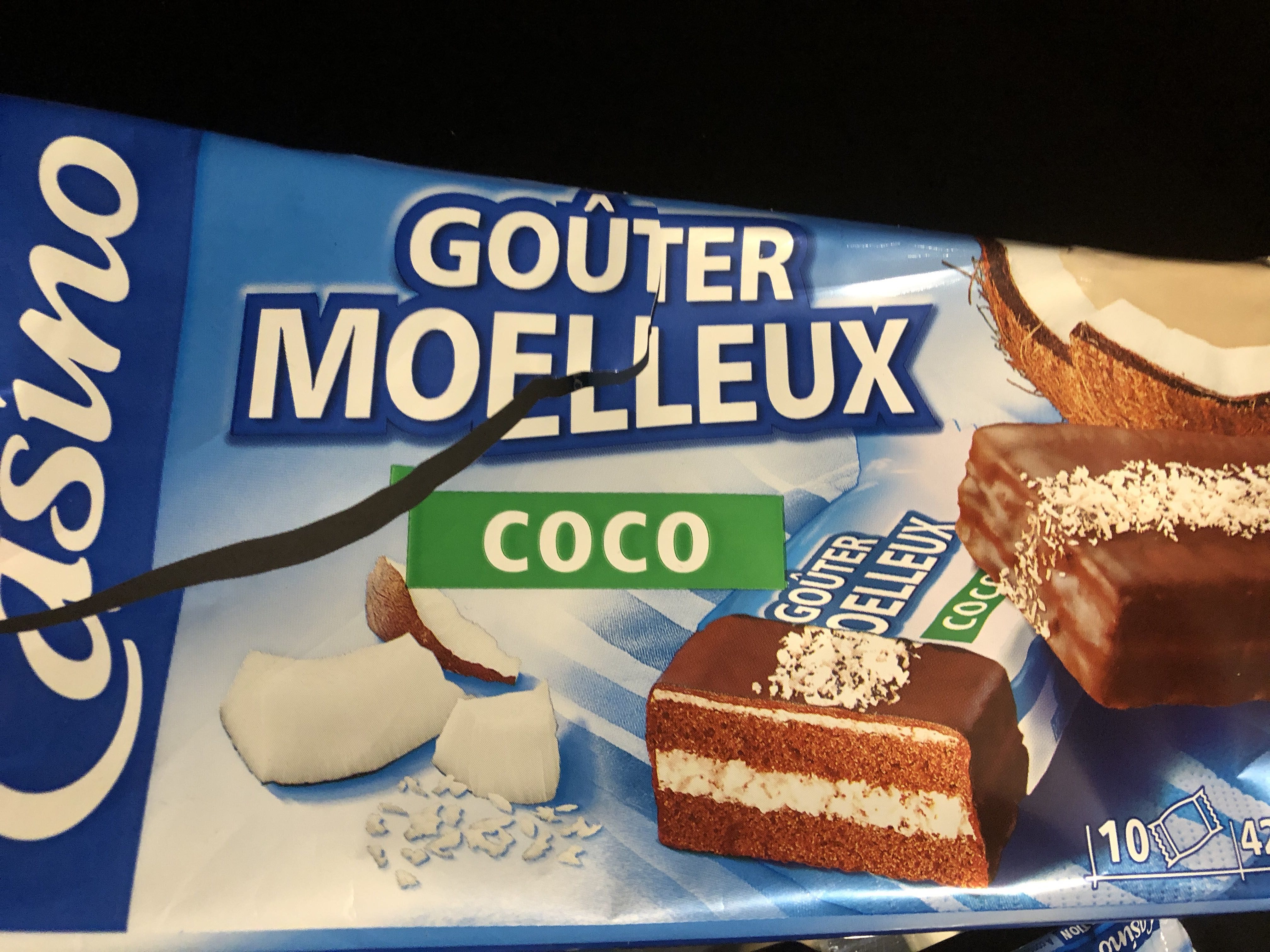Goûters moelleux saveur coco - Casino - 420 g
This product page is not complete. You can help to complete it by editing it and adding more data from the photos we have, or by taking more photos using the app for Android or iPhone/iPad. Thank you!
×
Some of the data for this product has been provided directly by the manufacturer casino.
Barcode: 3222473034390 (EAN / EAN-13)
Common name: 10 gâteaux au cacao, avec un fourrage au lait et à la noix de coco (27%) et un enrobage au cacao maigre (21.6%)
Quantity: 420 g
Packaging: Tray
Brands: Casino
Brand owner: Casino
Categories: Snacks, Sweet snacks, Biscuits and cakes, Cakes, Filled sponge cake slices
Labels, certifications, awards:
Sustainable, Sustainable Palm Oil, Nutriscore, Nutriscore Grade E, Roundtable on Sustainable Palm Oil, RSPO Segregated, fr:RSPO (IP ou SG)
Stores: Casino
Countries where sold: France
Matching with your preferences
Environment
Packaging
Transportation
Other information
Conservation conditions: A conserver à l'abri de la chaleur et de l'humidité.
Recycling instructions - To recycle: Barquette carton
Recycling instructions - To discard: emballages individuels et film plastique
Report a problem
Data sources
Product added on by kiliweb
Last edit of product page on by moon-rabbit.
Product page also edited by casino, casino-off, openfoodfacts-contributors, org-casino, quechoisir, teolemon, yuka.ZUlrbUg3UWJuL2NsbWZOaG9EWHJ4ZEFzMW9HQ2RuT21LZEFRSVE9PQ.








